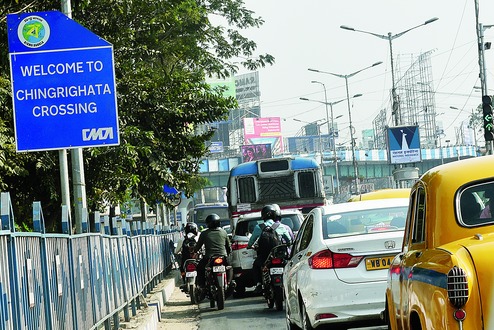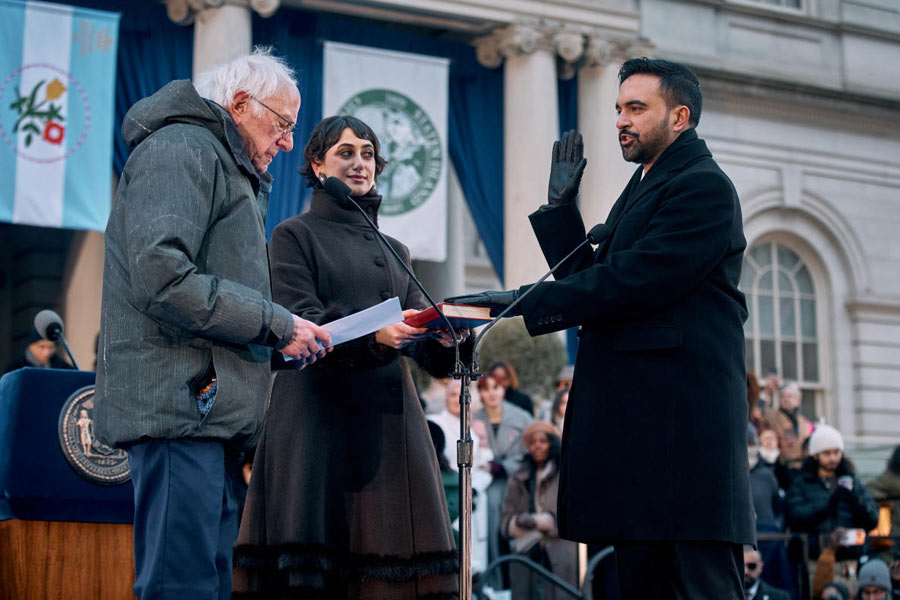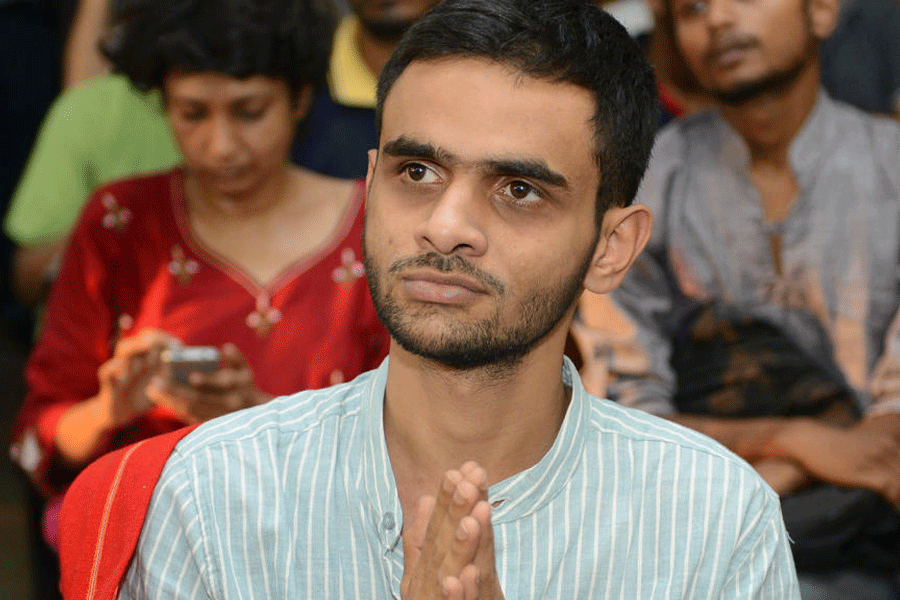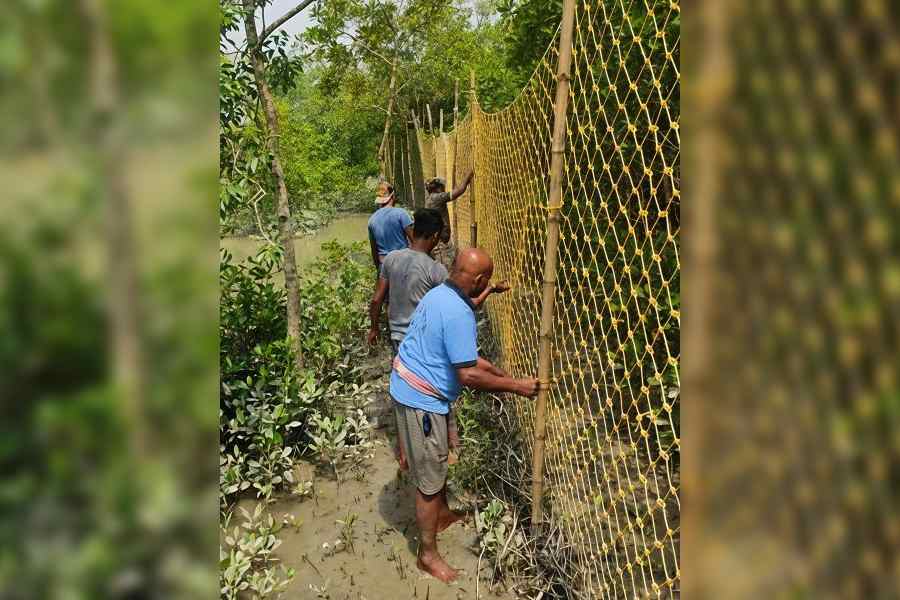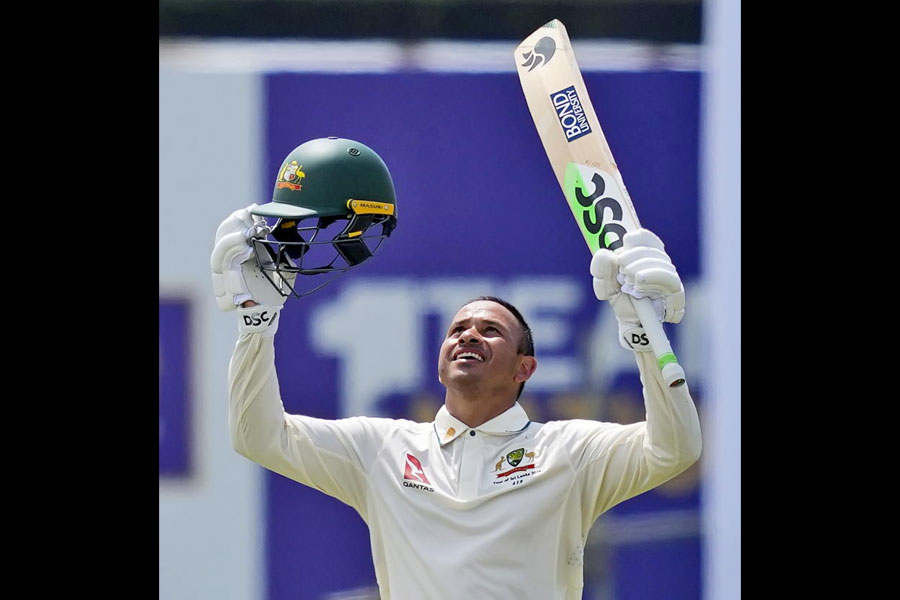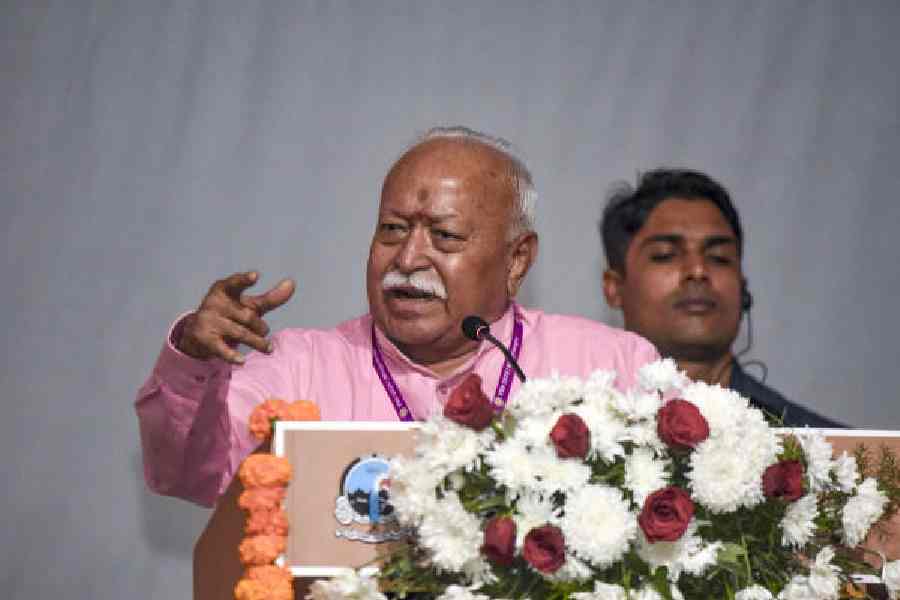
Chingrighata: The crossing on the Eastern Metropolitan Bypass where two college students were run over last Saturday has a name spelt and pronounced as differently as people airing opinions on why the place is so accident-prone.
A bus stop and two road signs of the Calcutta Metropolitan Development Authority (CMDA) say the name is "Chingrighata". The Calcutta Municipal Corporation (CMC) has signage saying it is "Chingrihata".
Metro looked up civic records to crack the curious case of the missing "g" in the CMC signage and discovered the existence of a "Chingrighata village" in Ward 58, which extends to the infamous crossing on the Bypass.
Some more delving into dusty files revealed that there was once a road named "Chingrihata Lane" in Ward 33, comprising Beleghata and Phoolbagan.
Finding out how Chingrighata got its name was an easier task. Proximity to the East Calcutta Wetlands, where fish farming is the primary occupation of the villagers, possibly explains the word "Chingri (the Bengali name for prawn)" in the name "Chingrighata".
In his book A History of Calcutta's Streets, the author P.T. Nair writes that Chingrighata "seems to mean where chingri (prawn) was sold".
The CMDA has put up a board on the road leading to the Chingrighata crossing from Salt Lake past Nicco Park, where the spelling has the word 'g'. The same spelling is used in a bus stop on the Ruby-bound flank near Shantinagar. Another board with identical spelling can be found a little north on the same flank, in front of Jal Vayu Vihar.
The CMC signage with the 'g' missing is located on the Ultadanga-bound flank, near the crossing of Chaulpatty Road and the Bypass.
The discrepancy in the spellings did not go unnoticed when thousands of commuters were stranded on the Bypass on Saturday because of arson and protests triggered by the fatal accident in Chingrighata.

Pabitra Sarkar, the former vice-chancellor of Viswa-Bharati, said the suffix " ghata" in the more visible variant of the name was a play on the word "ghat" that means a landing on the bank of a river or pond. "We have the word ghat in Bengali and Chingrighata must have been coined from the words chingri and ghat. Maybe there was a ghat in that place many, many years ago."
Records on old Calcutta confirmed the existence of a fishing ghat where Chingrighata stands in the late 19th Century. The website of the East Calcutta Wetlands Management Authority mentions that a fishing ghat named Pagladanga had been created in 1887.
Pagladanga is not far from the Chingrighata crossing. Barely 25 metres from there stands the Pagladanga police outpost, lending credence to the assumption that Pagladanga was not far from what is now a traffic scrum on the Bypass.
A senior CMC official said the spelling in the civic body's signage with the "g" missing was an error. "I think the wrong spelling in the board at the crossing is simple oversight."
The CMC is an institution more than a century old and keeper of the most authentic records on Calcutta's evolution. There is a separate committee to decide the names of roads and their spellings. But sources said the committee hardly meets nowadays.
Boards announcing the name of a place or a road are put up under the supervision of CMC engineers at the borough level.
"There are standardised colour schemes and font size for signage. The spelling of a name, unless there is some doubt, isn't verified by looking up the records," an engineer said.
Chingrighata isn't the only place along the Bypass that got its name from a fish. The place names Tangra and Topsia came from tengra and topshe, two old Bengali favourites.

